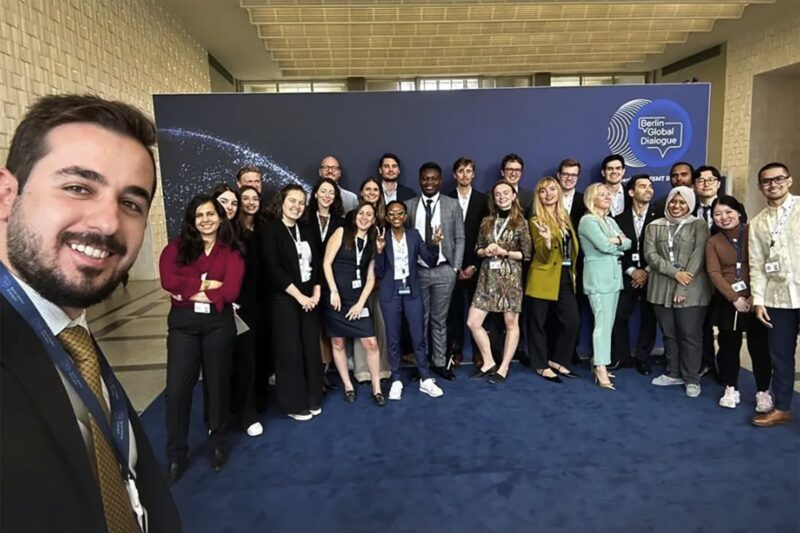Emanuel Ritschard ’24, a joint-degree student at the Jackson School of Global Affairs and Yale School of Management, reflects on attending the inaugural Berlin Global Dialogue at ESMT Business School in September 2023.
Last month, I was invited to represent Yale at the inaugural Berlin Global Dialogue as part of a Young Voices delegation from across the Global Network for Advanced Management. The new platform for exchange between business and policy was full of meaningful discussions that bridged gaps in perspectives and provided insights into otherwise obscure processes such as the G20 Leaders’ Statement negotiations. For me personally, the three-day event offered a unique glimpse into how industry and government representatives—the two stakeholder communities to which I have devoted my graduate studies at Jackson and SOM—share information and influence each other’s thinking.
The Berlin Global Dialogue team welcomed leaders from policy and business, including Olaf Scholz, Charles Michel, and Sri Mulyani Indrawati, as well as C-suite executives from companies such as Mercedes-Benz, BlackRock, Bank of America, and Siemens. Always deliberately placed in conversation with each other, these panelists discussed three main issues: the clean energy transition, geopolitical tensions, and technological disruption. As part of the Young Voices delegation, I got to meet many of the panelists in smaller group settings, as well, and ask for their reflections about the discussions happening at the forum.
Some of the highlights of the event included the first high-level panel with EU Council President Charles Michel, Indonesian Finance Minister Sri Mulyani, and Bank of America President Bernard Mensah, who discussed the necessary reforms to international financial institutions to finance a clean energy transition in the Global South. Similarly insightful was a discussion between Robert Habeck, Germany’s economy minister, and Mercedes CEO Ola Kaellenius, which was directly preceded by a panel of European industry executives that laid out their expectations for EU and German policymaking in a shifting geopolitical climate. In addition to these plenary panels, there were many more technocratic breakout sessions such as a discussion among G20 sherpas sharing their ex-post perspectives on the negotiations of the 2023 Delhi Declaration.
Throughout the event, the other “young voices” were themselves an inspiration. The group included students from around the world, contributing a vast range of unique perspectives. We had already met several times virtually before getting to Berlin and then joined an exciting side program of preparatory brainstorming meetings, cocktail receptions, and a dinner through which we got to know each other and crucially learn from each other’s distinct experiences. Together, we navigated the tightly scheduled event program, shared our reflections on the ideas discussed, and tried to challenge some of the narratives established among the more senior participants.
My experience at the Berlin Global Dialogue reminded me of the value of such symposia for finding solutions to the daunting challenges we are facing. I am very grateful for the opportunity that Yale, ESMT Berlin, and the Berlin Global Dialogue have given me and look back fondly at the days in Berlin.
This blog post originally appeared on the Yale School of Management website.
